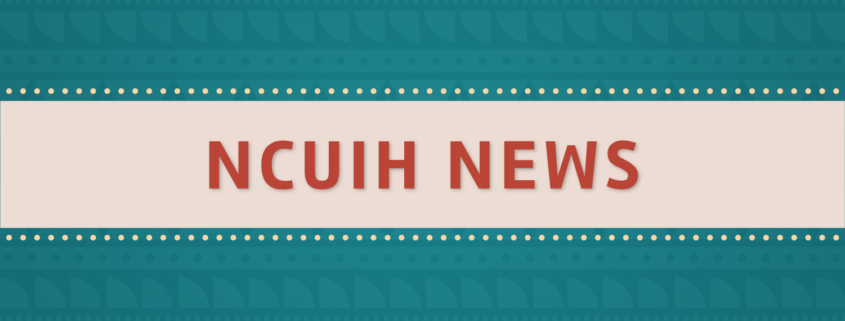NCUIH Hosts First Virtual Site Visit Retreat for Supporting Urban Native Youth Project
(April 21, 2020) – NCUIH and two of its Title V Urban Indian Organization (UIO) members, Native American Lifelines (NAL) and Native American Rehabilitation Association, Inc (NARA), participated in their 1st virtual site visit retreat as part of the Native Connections’ Supporting Urban Native Youth (SUNY) project in light of COVID-19 pandemic concerns. SUNY focuses on building the capacity of each urban community to address suicide and substance misuse in youth up to age 24 years. The sites are located in Baltimore, Maryland, and Boston, Massachusetts, as well as Portland, Oregon, respectively.
The four-day-long virtual retreat was structured on the Gathering of Native Americans model (GONA). Each day represented a different GONA theme (Belonging, Mastery, Interdependence, and Generosity) and included team-building activities, ice breakers and self-care practices, which were captured and co-facilitated by the external evaluator, from One Fire Associates, LLC.
NCUIH, NAL Boston, NAL Baltimore & NARA’s Portland staff and leadership were able to build a deeper sense of Belonging, Mastery, Interdependence and Generosity by:
- Sharing their successes thus far in the five-year grant and hope for the future in the remaining two years.
- Sharing challenges and best practices on creative ways to implement youth engagement activities during the COVID-19 pandemic.
- Showing strong interest in providing suicide and substance abuse certification training to their youth populations, possibly through virtual QPR training by a former NCUIH Youth Council member.
- Participating in breakout session activities that helped each site identify impactful partnerships, partnership challenges for areas of need for support, and partnerships they want to develop/ strengthen.
- Each site presented their overall UIO youth programming and best practices in how they support their respective communities.
- Developing strategies for sustainability based on identified priorities for each community, as well as strategic planning actions for the future.
- NCUIH identified TA support, including connecting peer-to-peer support to each site on areas of developing successful partnerships with academic institutions and correctional facilities to better support each sites’ community.





Leave a Reply
Want to join the discussion?Feel free to contribute!